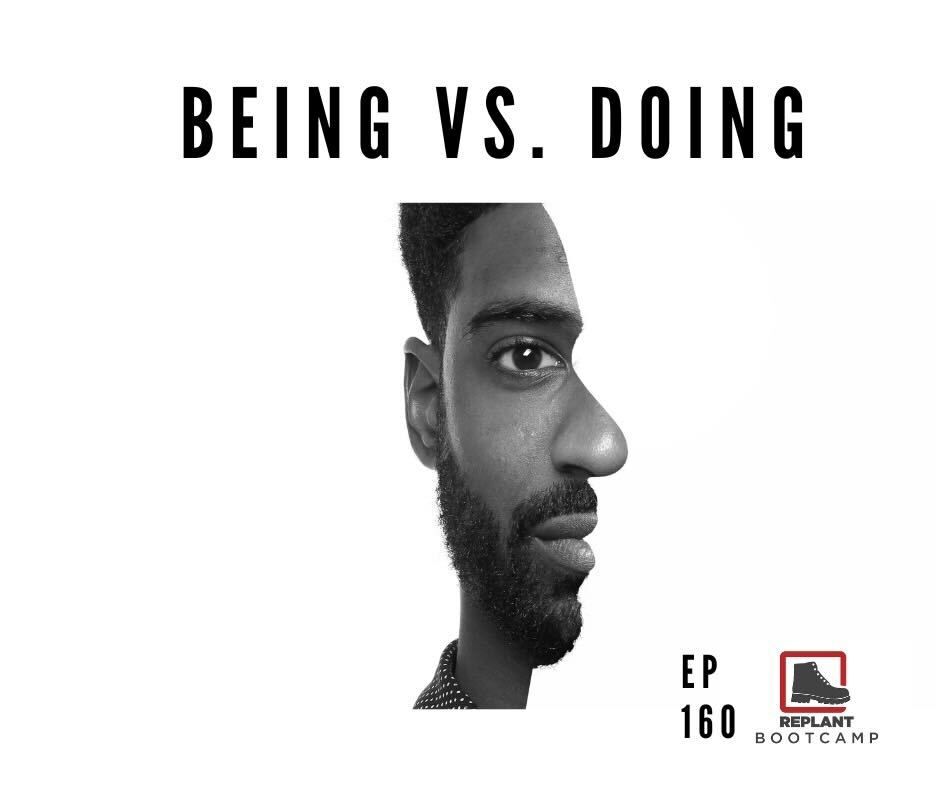Growing From Seed to Soil- Proclamation and Explanation
I am the world’s worst plant person. Whatever the opposite of a “green thumb” is, I have two of those. In fact, I may have two whole hands of them. I once won a prize at a women’s event where each woman got an arrangement of various sizes based on a game we played. I won the game, but my prize was this absolutely gorgeous potted plant. The look on my friend’s face was sheer terror. “I can’t let you take that home,” she said. “You have to let me take it to my house for you.” I said, “No way! I won it!” “Suit yourself,” she said. Then as I walked outside with the big plant in my arms, she walked behind me and yelled, “Dead plant walking! Dead plant walking!” the whole way to the car, like my plant had been condemned to die on death row.
She wasn’t wrong. I could lie to you and tell you I tried to keep it alive; that I watered it, tended the soil, gave it plant food, sang to it, and called it by name. But the truth is, the plant died within a few weeks due to nothing less than complete neglect on my part. And that’s how it goes with every plant I bring home, filled with hopes and dreams of a lovely plant sanctuary or an awesome vegetable garden. Within a few weeks, the seeds have dried up and my plants have withered because I failed to take them any further in their growth process.
Often, pastors can fall into the same struggle. While they have no problem spreading the seeds of the Word, they sometimes fail to cultivate that seed into something deeper.
PLATFORM MINISTRY- PLANTING THE SEED
For pastors, the place they generally plant a seed is the pulpit, whether it be sharing the Gospel or sharing vision for the congregation. From there, the church may also post on social media or a website, and perhaps put up signage around their building. This is referred to as, “platform ministry.” In some seminaries, this is thought of as “proclamation.” We use this avenue to proclaim “big-picture” ideas, exegete scripture, and broadcast powerful messages from the Word of God.
The pastor who is skilled at platform ministry will most likely be a gifted communicator. He will succeed at carving out time for his sermon preparation, and the church’s website will not only be up to date with the newest technology, but will also be consistently updated with new events and new ministries.
In the most extreme version of someone gifted in platform ministry, the pastor will be an influencer of his congregation and may operate more like a CEO than a shepherd. The church will have multiple events, always attempting to do better than the time before. The pastor may isolate himself for study and will not get to know the people he is leading. He may lack authentic relationships within his church, and his congregation will see him as inaccessible or inauthentic.
TABLE MINISTRY- CULTIVATING THE SEED 
Churches also have what’s referred to as a “table ministry.” While this can mean a literal table, it doesn’t always. These are deep, connective conversations that happen within fellowship with one another. The table ministries of a church are where the seeds of life transformation germinate and are cultivated into deep-rooted life change. Churches may call these types of ministries connect groups, family groups, D-Groups, or one-one-one discipleship. In table ministry, the congregation will learn to “do life” together– bearing one another’s burdens and struggles. When seminaries teach this subject, it’s thought of as “explanation” (as opposed to proclamation). In this area, we take the message from the platform and break it up into smaller pieces so it’s easier to understand.
A pastor who is skilled at table ministry is typically excellent at hospital visits, praying for his congregation, counseling people, and looking at the details of people’s lives. He will be a shepherd to his flock, ensuring that they don’t stray away and discerning their spiritual health.
Unfortunately, in the extreme, this pastor is not without faults. Because he fails to cast vision, his people are more likely to be tossed by every new wind of doctrine that comes along. His desire to appease everyone will cause him to be conflict-averse. Because he has not taken the role of a leader, he will become simply the “marry and bury chaplain,” instead of the pastor he needs and is called to be. 
EITHER/OR or BOTH/AND?
When we look at platform versus table ministry, we might be tempted to compare the two and decide one is more important than the other. We may wonder which is better– the preacher who can communicate change effectively, orr the pastor who ministers to the families in his congregation?
But do we have to choose? Of course not. One is not more important than the other. We must have the catalyst for life change, but we must also cultivate that into lasting transformation. Doctrinal teaching is biblical, and important. But so is relational disciple-making.
So how do we succeed at both platform and table ministry? How do pastors cast a vision and see the large picture while also knowing each of their congregation members well enough to know the details of their lives?
The answer is the role of what Jimbo Stewart calls the “Visionary Shepherd.” A visionary shepherd is one who effectively communicates the God-given vision for his people while also loving his congregation and caring for them. The best example of this Visionary Shepherd? Jesus. (Sometimes the “Sunday school answer” is also the right answer!) Look at the Great Commandments in Matthew 22:37-40: “And he said to him, ‘You shall love the Lord your God with all your heart and with all your soul and with all your mind. This is the great and first commandment. And a second is like it: You shall love your neighbor as yourself. On these two commandments depend all the Law and the Prophets.’”
Jesus reminds pastors that loving Him with everything is the greatest thing you can do as a pastor. But He also says loving people is just as important. Preaching the gospel AND living the gospel, both, at the same time. Always. (No one said being a pastor was easy. If they did, they aren’t a pastor and have never been one. Stop listening to them for advice on pastoring.)
Churches can, and should, have both a successful platform ministry and a successful table ministry. Before you can cultivate a garden, you must have a seed. But a seed will dry up without proper care and maintenance. Even I know that.
Now, if you’ll excuse me, I have to go sing to the dead fern in the corner. I know it won’t bring him back, but at least I can pretend I tried.
Do you need help with your platform ministry? Get in touch with our partner, One Eighty Digital at https://oneeighty.digital/. They can help you optimize your online presence to be the best it can be!


